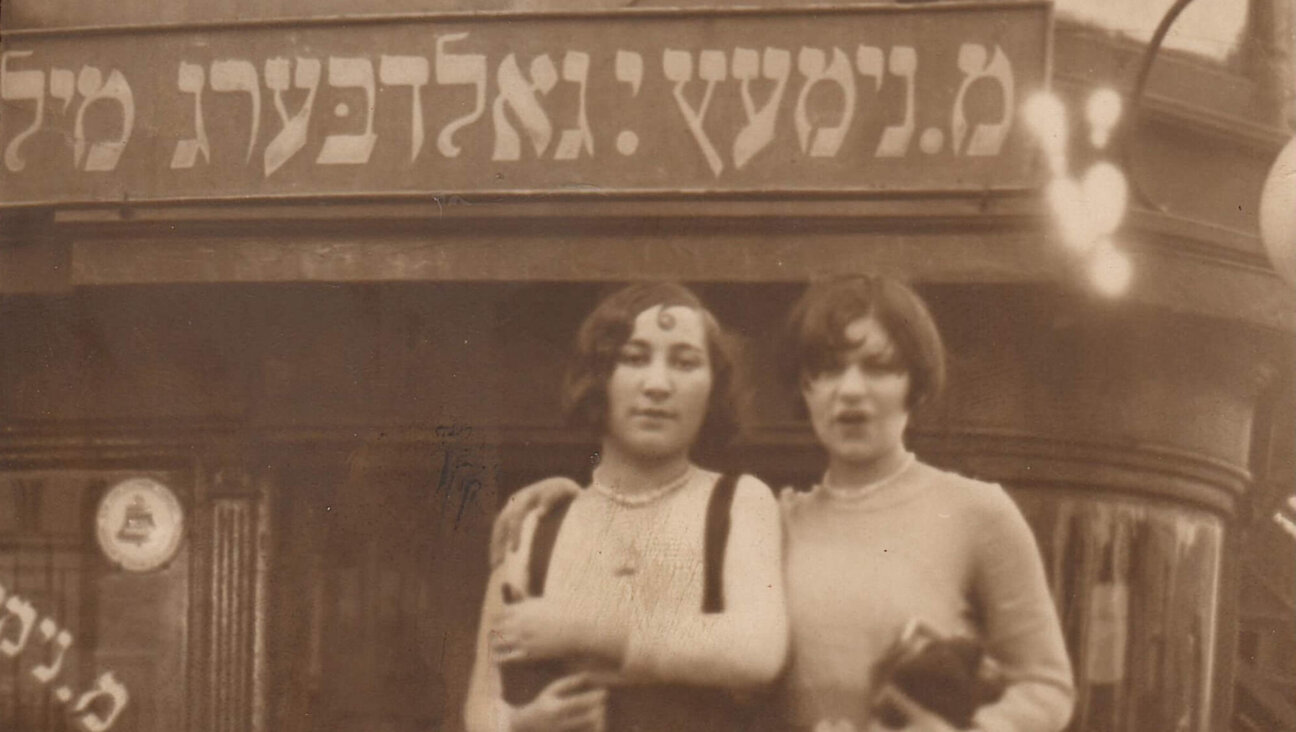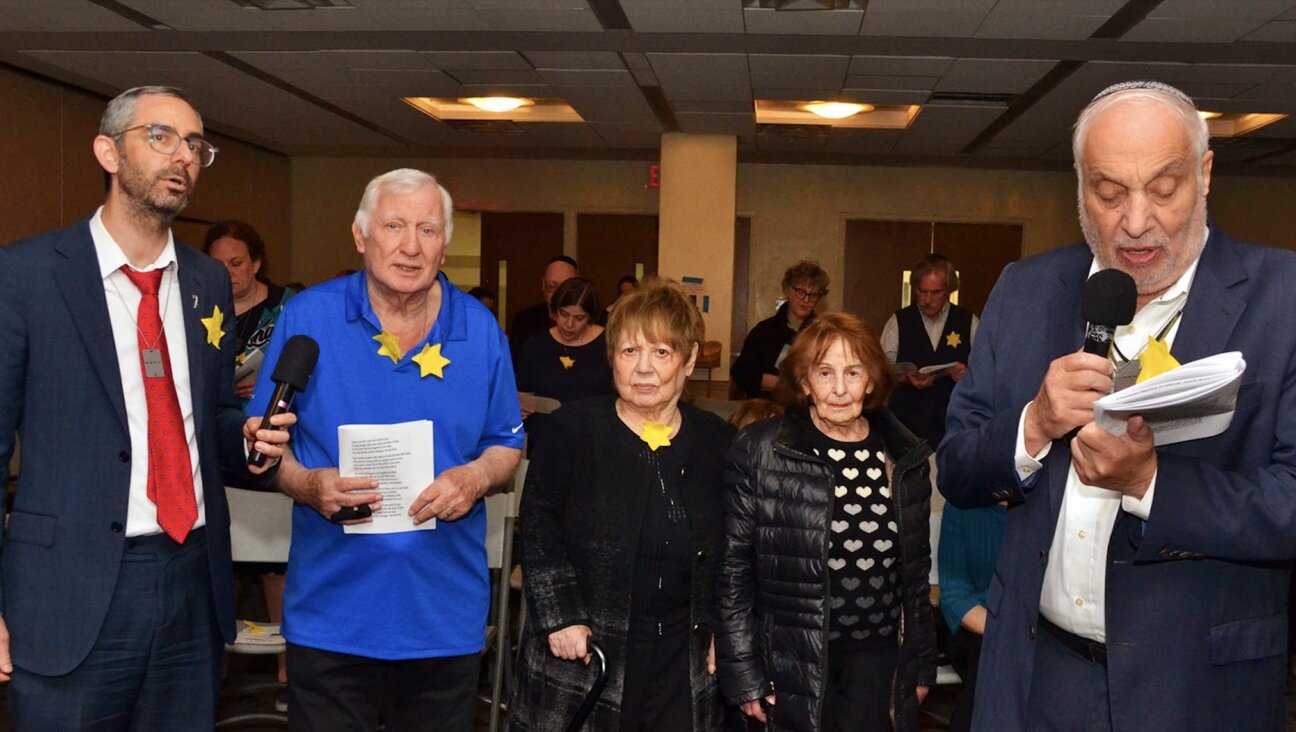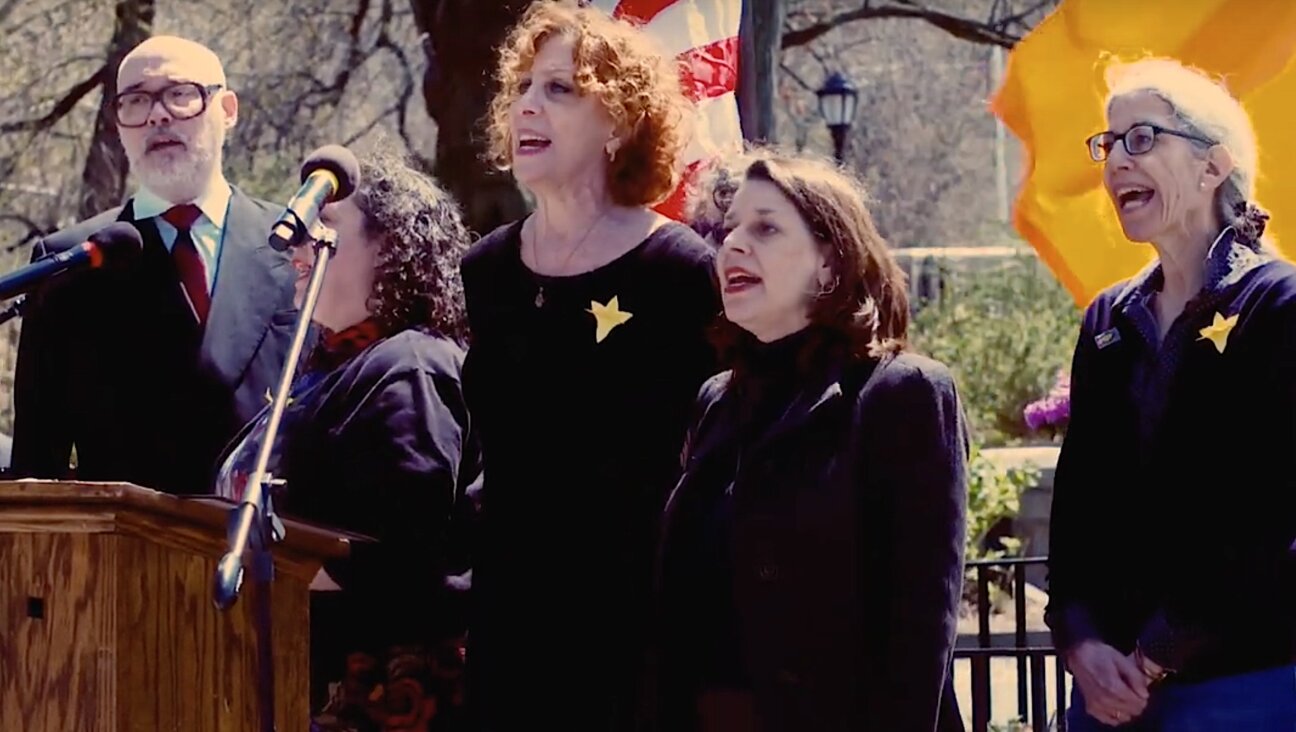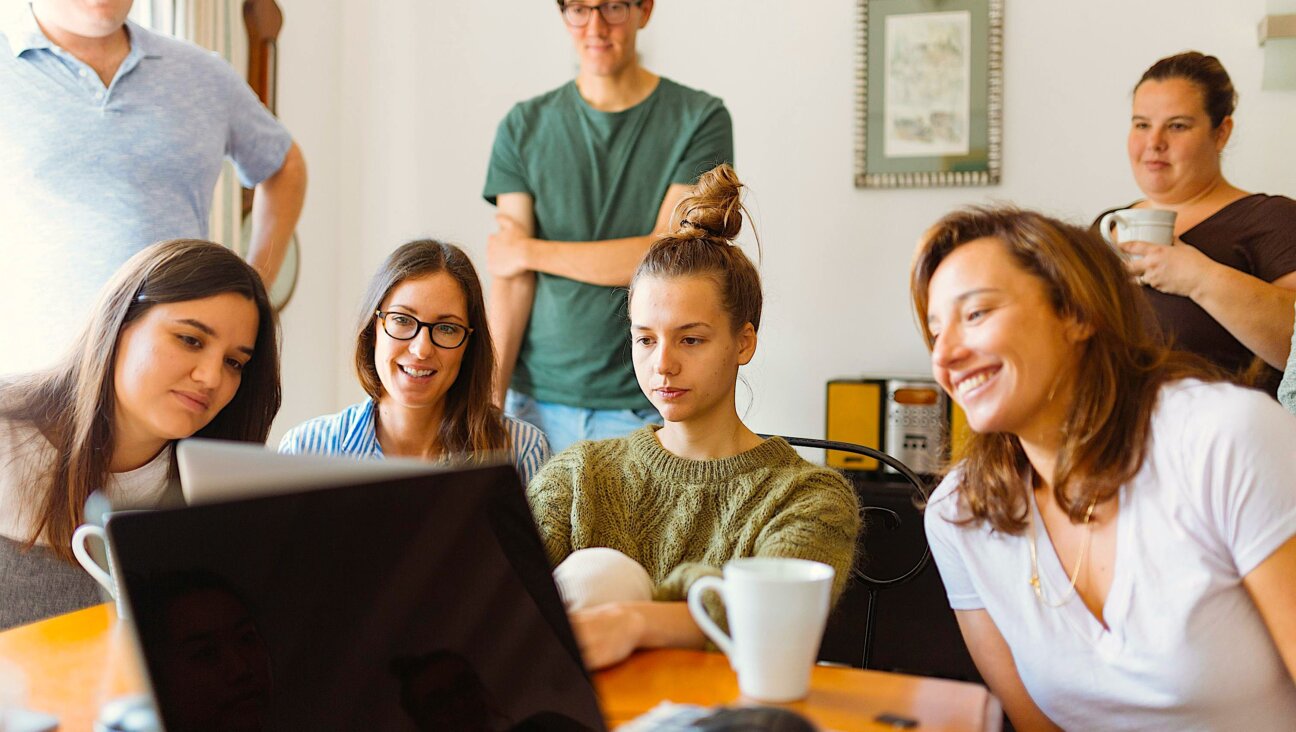My father spoke like Tevye the Dairyman – but with a Polish-Yiddish dialect
Part of a Forverts series devoted to Father’s Day
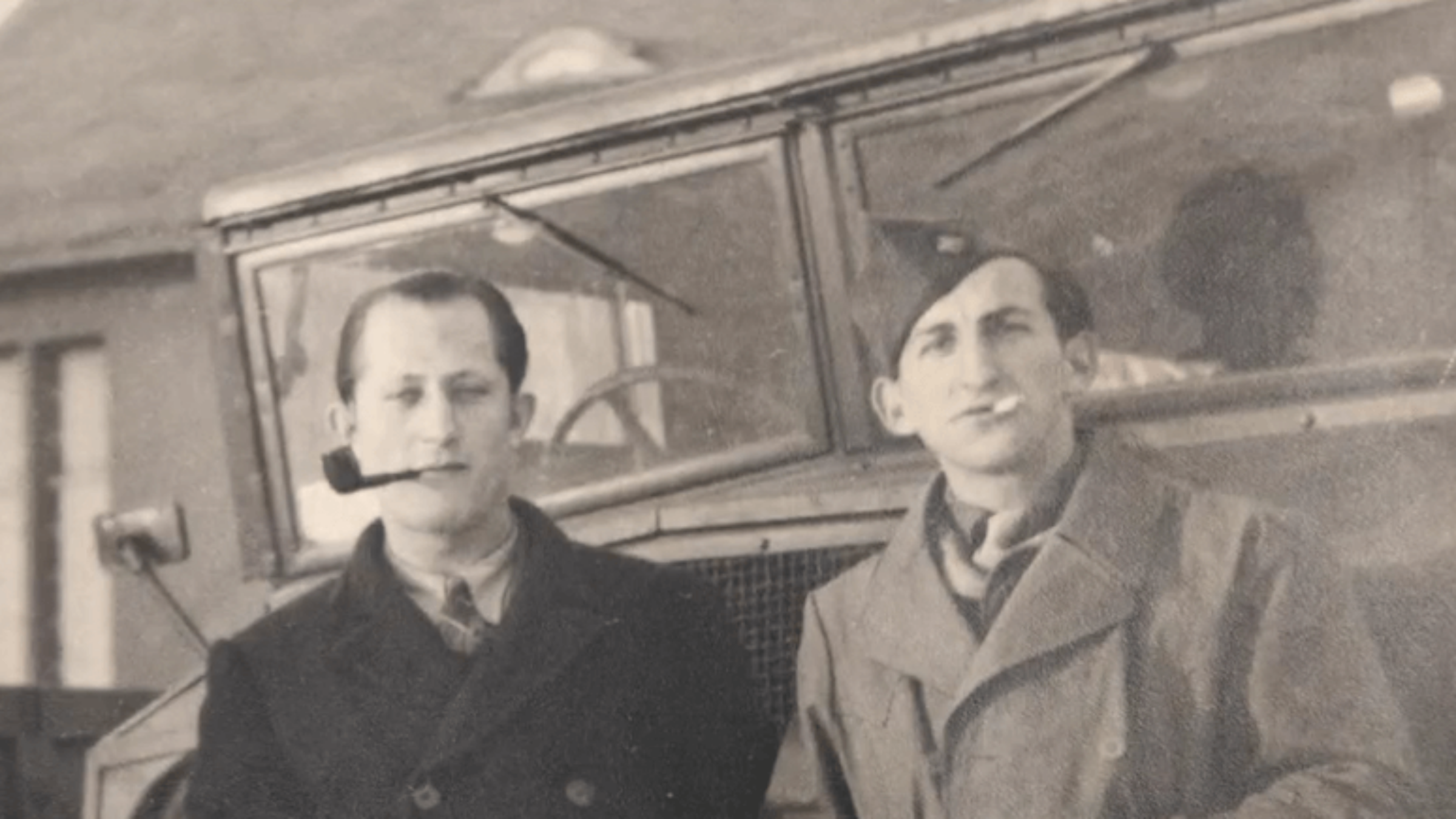
Sheldon’s father, Hershl (left), circa 1948 Courtesy of Sheldon Londner
My father Hershl (Harry in English, Heshek in Polish) was a Holocaust survivor of many camps and ghettos, as was my mother. Each made their way to America separately. My father, by way of Germany; my mother through Sweden. They met in Cleveland and wed in 1954. I, Shulem Dovid, came into the world in 1955 and my brother Ronnie (Srul Riven) in 1959.
My parents were both polylingual. My father spoke English, Yiddish, Polish, German and some Russian. My mother spoke English like a native, Yiddish, Polish, Swedish, Hungarian and a smattering of Hebrew. But the language at home was mameloshn and the secret language was Polish.
Without realizing it at the time, my parents were Yiddishists. Native speakers of the language, they were not only happy speaking it; they also enjoyed playing with the language, molding it to their own whims and desires. How? Both had excellent vocabularies in Yiddish and used many sprikhverter (proverbs) and dozens, if not hundreds of expressions, which I never heard anwhere else, leading me to wonder if they might actually have coined a lot of them.
My father, for example, would say (and I’m writing this in his native Polish-Yiddish dialect): Ven es kimt tse teritsim iz er a khukhem balayle (when it comes to making excuses, he’s not that bright); ikh vel dir derlangen aza klap, vest zikh bagrisn mit der elter-boben (I’m going to slap you so hard you’ll be greeting your great-grandmother in heaven).
So Yiddish was the first language for my brother and me. And this wasn’t stam (any old) Yiddish, but a poylishn yidish (the Polish-Yiddish dialect) peppered with loshn-koydesh, Hebrew and Aramaic expressions. Think Tevye der milikhiker (Tevye the Dairyman) with a Polish accent.
Unlike other survivors’ children who heard Yiddish at home but chose not to speak it, my brother and I loved speaking Yiddish from the earliest age onward. A friend of the family, now in her 90s, told me the other day that she loved coming to our house to hear us running around playing cops and robbers or cowboys and Indians in fluent Yiddish.
As I was always trying to enlarge my vocabulary I would ask my father almost daily: “Ta, vi azoy zogt men dos af Yiddish?” (Dad, how to you say this in Yiddish?) Never once do I remember my father not knowing how to translate a word or expression. This was decades before the publication of the English-Yiddish Comprehensive Dictionary.
It was only after my his passing in 2001 (and my mother’s in 1994) as well as my own increasing involvement in the secular Yiddish world that I realized what kind of yerushe (legacy) I had been gifted by my parents, but especially by my father. His birthday was just the other day (June 10, 1919). I miss him greatly.
Happy Father’s Day, Ta! Vi azoy zogt men dos oyf yidish?
A message from our Publisher & CEO Rachel Fishman Feddersen

I hope you appreciated this article. Before you go, I’d like to ask you to please support the Forward’s award-winning, nonprofit journalism during this critical time.
At a time when other newsrooms are closing or cutting back, the Forward has removed its paywall and invested additional resources to report on the ground from Israel and around the U.S. on the impact of the war, rising antisemitism and polarized discourse.
Readers like you make it all possible. Support our work by becoming a Forward Member and connect with our journalism and your community.
— Rachel Fishman Feddersen, Publisher and CEO






